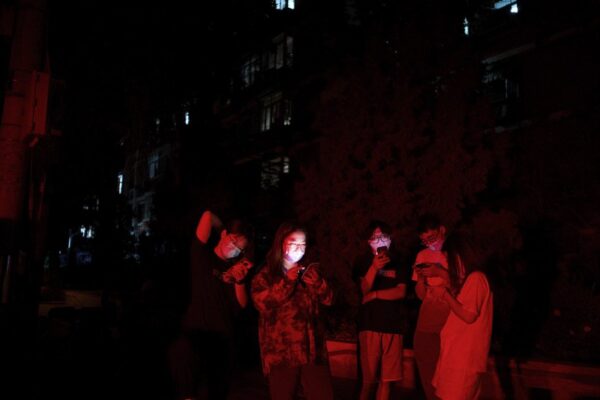Linghu Changbing will be 23 this year. Even before the pandemic hit China, he was already starting to feel that the traditional goals of marriage, a mortgage and kids were beyond his reach. “I had no time to find a girlfriend back in China, because I was working from eight in the morning to 10 at night, sometimes even till 11.00 p.m. or midnight, with very little time off,” said Linghu, who joined the “run” movement of people leaving China in 2022. “I didn’t earn very much, so I couldn’t really afford to go out and spend money having fun with friends, or stuff like that,” he says of his life before he left for the United States. “I had very little social interaction, because I didn’t have any friends, which meant that I couldn’t really pursue a relationship,” he said. “As for an apartment, I had no desire to buy one at all.” The situation he describes is common to many young people in China, yet not all are in a position to leave. They are part of an emerging social phenomenon and social media buzzword: the “young refuseniks” – people who reject the traditional four-fold path to adulthood: finding a mate, marriage, mortgages and raising a family. They are also known as the “People Who Say No to the Four Things.” Three years of stringently enforced zero-COVID restrictions left China’s economic growth at its lowest level in nearly half a century, with record rates of unemployment among urban youth. Refusing to pursue marriage, mortgages and kids emerged from that era as a form of silent protest, with more and more people taking this way out in recent years. ‘Far too high a price’ Several young people who responded to a brief survey by RFA Mandarin on Twitter admitted to being refuseniks. “I’m a young refusenik: I won’t be looking for a partner or getting married, I won’t be buying a property and I don’t want kids,” reads one comment on social media. People use mobile phones in front of a fenced residential area under lockdown due to Covid-19 restrictions in Beijing, May 22, 2022. Credit: Noel Celis/AFP “Finding love comes at far too high a price,” says another, while another user comments: “It’s all very well having values, or being sincere, but all of that has to be backed up with money.” “It’s not that I’m lazy,” says another. “Even if I were to make the effort, I still wouldn’t see any result.” Others say they no longer have the bandwidth to try to achieve such milestones. “I’ve been forced back in on myself to the point where I feel pretty helpless,” comments one person. For another, it’s more of a moral decision: “I think the best expression I can make of paternal love is not to bring children into this world in the first place.” Similar comments have appeared across Chinese social media platforms lately, and have been widely liked and reposted. Marriage rates have been falling in China for the past eight years, with marriages numbering less than eight million by 2021, the lowest point since records began 36 years ago, according to recent figures from the Civil Affairs Ministry. People are also marrying much later, with more than half of newly contracted marriages among the over-30s, the figures show. According to Linghu Changbing, who dropped out of high school at 14 and moved through a number of cities where he supported himself with various jobs, refuseniks are mostly found in the bigger cities with large migrant populations. Young people in smaller cities like his hometown are more likely to be able to afford a home, and will often marry and start families as young as 18. “In my experience, refuseniks seem to cluster mostly in the busier cities,” he says. “The more competitive a city, the more you will see this phenomenon.” Curling up, lying flat, running away and venting Shengya, a migrant worker in Beijing, has a similarly depressing view. He spent two years doing nothing at his parents’ house, a phenomenon that has been dubbed “lying flat” on social media. “I basically lay around at home the whole time,” he said. “I couldn’t get motivated to do anything. My dad asked me why I didn’t go out and get a job, and I told him: ‘The only point of a job would be to prevent starvation, but I already get enough to eat here, so what difference would it make?’” An employment agency in Shanghai. Credit: Reuters Linghu Changbing went through a very similar phase, until someone got him a job working overseas. Looking back on that time, he says that China’s young refuseniks are similar to the rats in the Universe 25 experiments by ethologist John B. Calhoun in the 1960s, in which rats given everything they needed eventually stopped bearing young, leading the population to collapse. “The marginalized rats gradually gave up competing at all, and suppressed their natural desires, leading to constant personality distortions,” he says. “Lying flat” has entered the online lexicon as a way of describing the passive approach adopted by many young people in China, while “curling up,” also known as “turning inwards,” describes a personality turned in on itself from a lack of external opportunity for change. While those who can join the “run” movement, leaving China to seek better lives overseas, others act out their frustrations in indiscriminate attacks on others, known on social media as “giving it your all,” or “venting.” For late millennials and Generation Z in China, curling up, lying flat and running away are the main available options, as not many young people have the wherewithal to leave the country and start a new life elsewhere. ‘A very heavy burden’ A Chengdu-based employee of an architectural firm, who gave only the nickname Mr. J, said he first came to the realization that he would be a refusenik during the rolling lockdowns, mass incarceration in quarantine camps and compulsory daily testing…





